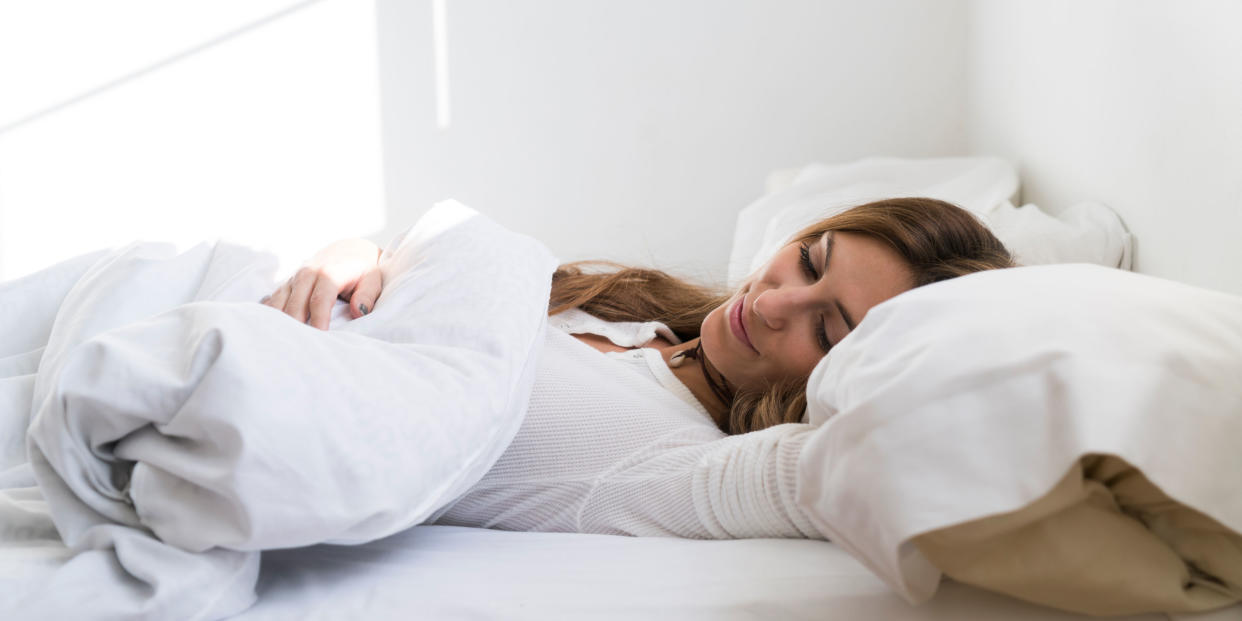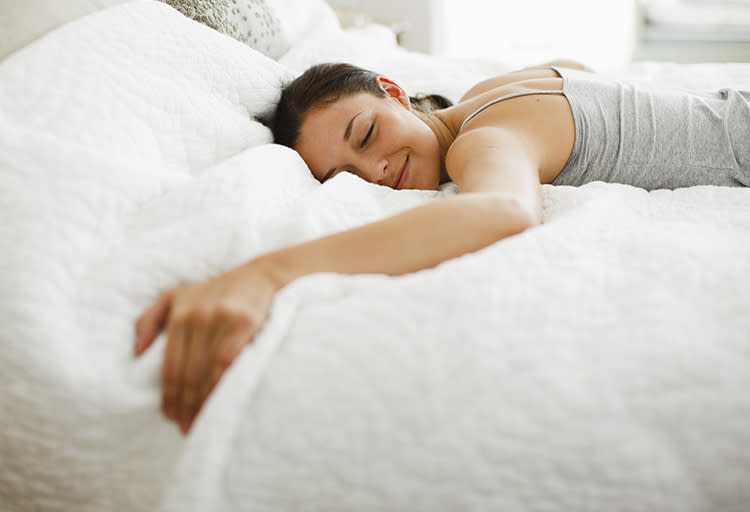The 2018 sleep trends an expert wants you to know about

As we approach the new year, many of us will be taking a step back from the festivities to think about what it is that we really want out of 2018… And what bad habits we'll be putting to bed along with the previous 12 months.
When it comes to sleep, 2017 marked the start of the 'clean sleeping' and 'smart sleeping' trend, which saw many of us meticulously recording our snooze and logging the number of hours we spent between the sheets. But, far from being healthy, Dr Petra Simic – sleep expert and clinical director of Bupa Health Clinics – argues that such attitudes could have had a negative impact.
"Putting a number on how many hours of sleep we should get just isn't realistic. When we talk about 'good' and 'bad' sleep we're creating fear about something that is as personal to you as a fingerprint."
She adds:
"This constant concern about not getting enough sleep can cause you to actually lose sleep. I'm encouraging Brits to make 2018 the year we all say goodnight to sleep anxiety."
To help Brits shake off sleep anxiety in 2018, Dr Petra has shared her six trend predictions for the year ahead…
1. Sleep binging
We know that getting a full night's sleep every night is the ultimate goal but, for most people, this is an unrealistic expectation. So, Dr Petra says, when you get the opportunity for a good, long sleep – take it.
"Recharging your batteries with an extra-long slumber at the weekend or during a holiday is something we should embrace and enjoy. Regular sleep binges will help your body to do all the repairing it needs to do – so don't feel guilty about having an early night, or an extra lie in."
2. Ditch the trackers
From calories to steps, modern society has taught us that counting everything will lead to a happier, healthier life. However, putting a number on how many hours of sleep we should be getting can exacerbate anxiety about not being able to get enough.
"With more of us counting sleep rather than sheep, 2018 should be the time when we reflect as individuals on what we need, and what we can realistically achieve. If you are someone who struggles to nod off, or you find yourself waking up during the night, don't be tempted to check the time. This immediately causes your brain to calculate how many hours of sleep you've clocked and stimulates it with light, making it less likely that you'll fall asleep again quickly."
3. Made-to-measure sleep
Comparison is the thief of joy, or so the saying goes, and this is especially true when it comes to sleep.
"I hear people say all the time that they 'don't sleep well', however, when you dig a bit deeper, most of the time they are comparing themselves with those (literally) closest to them – usually their partners or the people they live with."
Instead of judging yourself on the habits of others, ask yourself how you feel about your sleep. The amount of sleep someone requires really varies, and we need to think about our individual needs when it comes to getting a good night's rest.

4. Losing the race to bed
In the evening we naturally start to relax and feel sleepy, whether it's in front of the TV or elsewhere. We then realise it's time for bed and rush to prepare. This adrenaline stimulates our bodies and makes it harder to drop off.
"This year we want to encourage people to lose the race to bed. I encourage people to lose this race to bed and instead do all the necessary bed- preparation before they sit down to relax. Get your PJs on and teeth brushed before chilling out. Avoid screens, dim the lights and let yourself relax. Once you feel sleepy, just take yourself straight to bed."
5. Holistic help
If you regularly struggle with sleep, or even if you just want to find out how to improve your personal sleep pattern, a health assessment is a great way to get feedback on your entire lifestyle.
"During a health assessment – which we provide at Bupa Health Clinics – we show our customers that there's no such thing as a 'normal' night's sleep, and help to build a picture of what would work for you as an individual. This gets people to become more aware of their personal needs and follow their own rules about sleep. Rest assured, learning how to get a good night's sleep will help with every area of your life as you'll have more energy."
6. Energy-boosting naps
It may be hard to work around work but a short nap of 20-30 minutes can help improve mood, alertness and performance, especially in the early afternoon when blood sugar levels are low.
"Just remember that naps shouldn't replace long periods of sleep, as this is when the real work begins and our bodies really get the chance to rejuvenate and repair. And like everything to do with rest, it's entirely personal – naps may be great for some while others will find it difficult to include in their day-to-day routine – and that's absolutely fine!"
Here's to better sleep in 2018!
For more information on Bupa's full-body health assessments, click here. For more helpful sleep tips, head over to our sleep collection.
You Might Also Like

